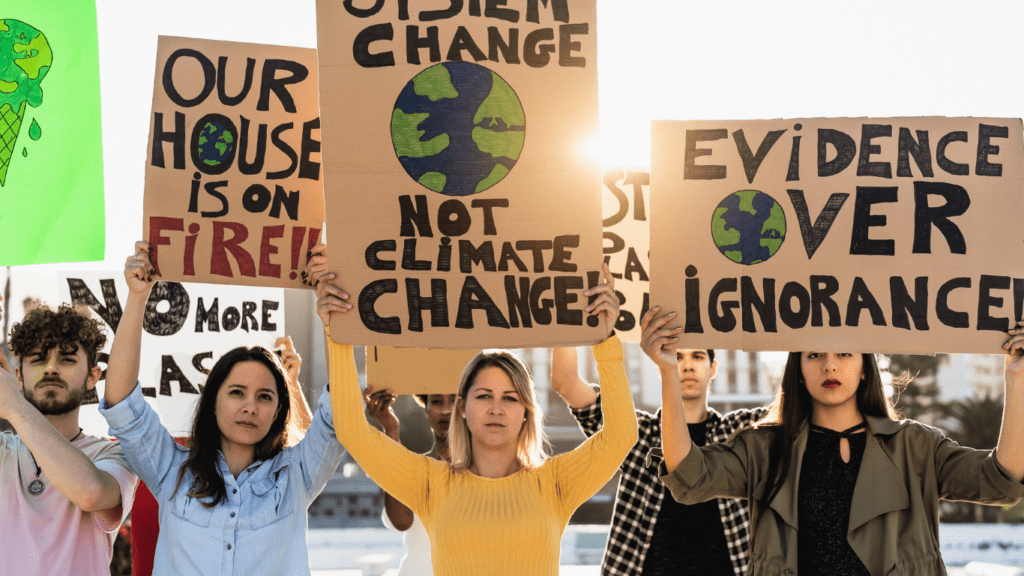As someone who’s passionate about both mental health and environmental issues, I’ve often pondered the intricate connection between climate change and our well-being. The impact of our changing climate on mental health is a topic that deserves more attention and understanding. From the anxiety induced by natural disasters to the grief over environmental loss, the toll on our mental well-being is undeniable.
In this article, I’ll delve into the lesser-explored aspects of how climate change affects our mental health. Understanding these effects is crucial in developing strategies to support individuals and communities in coping with the emotional challenges posed by a rapidly changing world. Let’s explore the profound ways in which climate change can influence our mental well-being and what we can do to nurture resilience in the face of these challenges.
Understanding the Connection Between Climate Change and Mental Well-being
Exploring the intricate link between climate change and mental well-being reveals profound insights into the human experience amidst environmental transformations. Climate change isn’t just about extreme weather events or melting ice caps; it’s also about the subtle, yet significant, impacts on our psychological and emotional states.
- Recognizing Emotional Responses to Climate Change
Understanding the emotional responses to climate change is crucial in addressing mental health implications. From feelings of eco-anxiety to solastalgia, individuals may experience a range of emotions in response to environmental changes. Eco-anxiety, for example, stems from a sense of powerlessness in the face of ecological crises and the uncertainty of the future.
- Addressing Climate Grief and Loss
Climate change also brings about feelings of grief and loss, not only for the natural world but also for the way of life that is being altered. As ecosystems transform and species disappear, individuals may experience profound grief, akin to mourning the loss of a loved one. This climate grief can affect mental well-being in complex ways.
- Building Resilience to Climate-induced Stress
Nurturing resilience is essential in combating the mental health challenges associated with climate change. By developing coping mechanisms, fostering social support networks, and promoting self-care practices, individuals can better navigate the emotional toll of environmental shifts. Building resilience equips us with the tools to adapt and thrive in the face of adversity.
Understanding the multifaceted relationship between climate change and mental well-being is crucial for developing holistic strategies to support individuals and communities in coping with the emotional impacts of a changing environment. By recognizing and addressing these challenges, we can strive towards fostering a healthier and more resilient society in the face of climate uncertainty.
Impact of Climate Change on Mental Health
Climate change has a profound impact on mental health, leading to increased anxiety and stress levels, as well as affecting emotional well-being. The escalating environmental challenges contribute to elevated levels of eco-anxiety and climate grief, posing significant risks to mental well-being.
Increased Anxiety and Stress Levels
The relentless changes in our environment due to climate change can trigger heightened levels of anxiety and stress. The uncertainty and unpredictability associated with extreme weather events, natural disasters, and ecological disruptions can overwhelm individuals, impacting their mental health. Constant exposure to distressing news about climate-related crises can exacerbate these feelings, leading to persistent anxiety and stress.
Effects on Emotional Well-being
The effects of climate change on emotional well-being are multifaceted. Witnessing the destruction of natural habitats, loss of biodiversity, and experiencing the aftermath of climate-related disasters can evoke feelings of grief, helplessness, and despair. These emotional responses can manifest in various ways, affecting mood, behavior, and overall mental well-being. Coping with the emotional toll of environmental changes requires resilience, support systems, and coping strategies to navigate the complex emotions brought about by climate change.
Coping Mechanisms and Strategies for Improving Mental Well-being
In dealing with the psychological challenges posed by climate change, it’s crucial to employ effective coping mechanisms and fortifying strategies to enhance mental well-being. Here are some practical approaches that individuals can adopt to navigate the emotional toll of climate-related stress and anxiety:
- Mindfulness Practices:
Engaging in mindfulness techniques, such as meditation and deep breathing exercises, can help individuals stay present and manage overwhelming thoughts and emotions triggered by climate change concerns. - Physical Exercise:
Regular physical activity has been shown to boost mood and reduce stress. Incorporating exercise into your routine can provide a much-needed outlet for pent-up anxiety and tension related to climate change worries. - Strengthen Social Connections:
Building a robust support network of friends, family, or community groups can offer emotional solace and a sense of solidarity in facing the challenges of climate change together. - Limit Exposure to Distressing Media:
Constant exposure to distressing news about climate disasters can exacerbate feelings of despair and hopelessness. Setting boundaries on media consumption can help in managing anxiety levels. - Seek Professional Help:
It’s important to recognize when climate-induced anxiety or grief is significantly impacting your daily life. Seeking support from mental health professionals or therapists can provide valuable coping strategies and emotional guidance. - Practice Self-care:
Engaging in self-care activities, such as hobbies, spending time in nature, or engaging in creative outlets, can replenish emotional reserves and cultivate a sense of well-being amidst climate-related stressors.
By incorporating these coping mechanisms and strategies into daily routines, individuals can proactively address the emotional implications of climate change on mental health, fostering resilience and empowering themselves to navigate uncertainty with greater emotional stability.
Seeking Professional Help and Support
I emphasize the importance of seeking professional help when the emotional toll of climate change becomes overwhelming. It’s essential to recognize that there are limits to self-care practices and social support, and in some cases, professional intervention is necessary to address mental health challenges effectively.
When coping mechanisms and support networks are insufficient in alleviating eco-anxiety or climate grief, consulting with mental health professionals can provide additional tools and strategies to manage these emotions. Therapists, counselors, or psychologists can offer tailored interventions, such as cognitive-behavioral therapy or mindfulness-based techniques, to help individuals navigate their feelings of distress and uncertainty.
Additionally, psychiatrists may prescribe medication if deemed appropriate to address severe symptoms of anxiety or depression associated with climate-related stress. It’s crucial to remember that seeking professional help is a sign of strength, acknowledging the complexity of one’s emotions and taking proactive steps towards mental well-being.
Integrating professional support into one’s mental health toolkit can enhance resilience in the face of climate change-induced psychological challenges. By working with trained professionals, individuals can develop coping strategies, build emotional stability, and cultivate a sense of empowerment to confront the impacts of environmental transformations on mental well-being.


